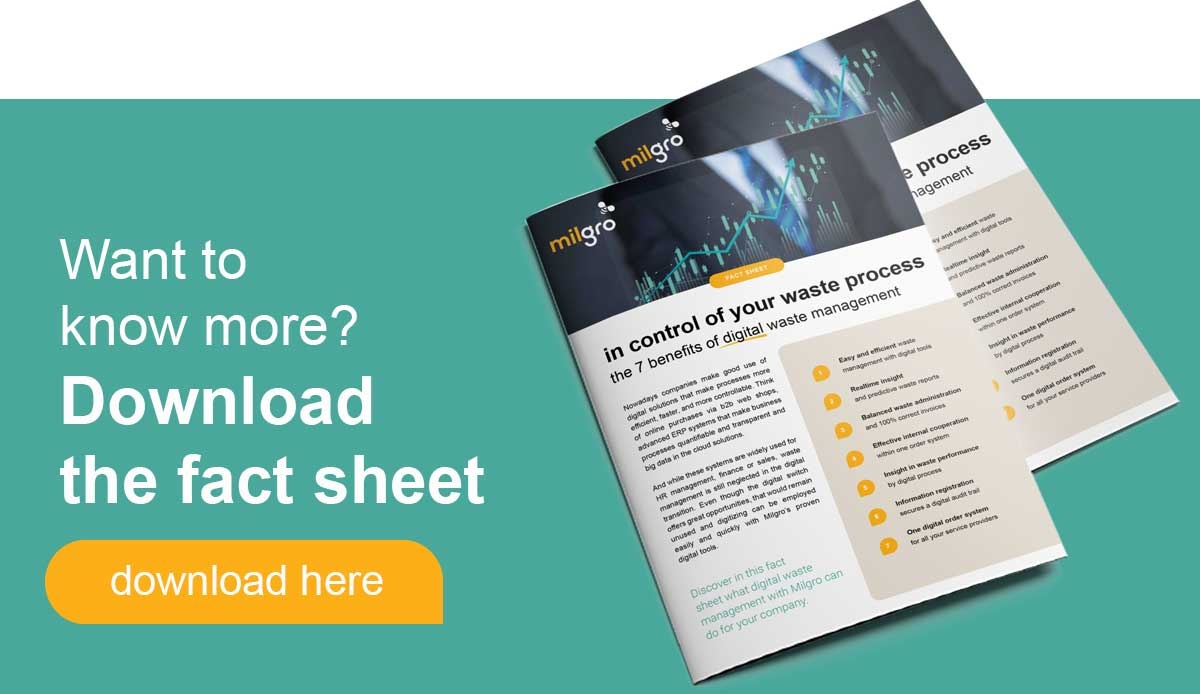Do you work for an organization with more than 250 employees? And is the annual turnover more than 40 million euros? There is a good chance that your company's annual report will soon be considerably thicker, with extensive information about sustainability. So also with data about the waste and raw materials process. The European Union wants to stimulate transparency and sustainability with new regulations, in order to achieve the climate objectives.
The new regulation from Brussels is called the Corporate Sustainability Reporting Directive (CSRD). This will most likely come into effect in 2023 and will oblige these companies to report on the social and environmental impact of their business operations. In addition, the companies must set up systems to collect and secure data. Companies are also obliged to have their annual report checked by an external accountant. Listed companies are already doing this.
Other guidelines on the way
There are other regulations related to this. The renewed European Energy Efficiency Directive (EED), for example. This obliges companies to have an audit carried out every four years on the various energy flows of a company and the measures that are taken to save energy. Then there is also another guideline in the making; the Sustainable Corporate Governance Directive (SCGD). This must ensure that the boardrooms of companies become truly sustainable, and that sustainability is not regarded as a bonus. They are all part of a larger plan for Europe; the European Green Deal. This should rapidly make Europe more sustainable.
What about collecting sustainable data?
Back to the Corporate Sustainability Reporting Directive. Exactly what the rules will be on which a company must report has not yet been fully worked out. What is clear is that it will have to be about objective figures about the environment, and also about social capital. Environmental risks such as water damage due to extreme rainfall or loss of biodiversity must also be reported. And companies need to show that they have clear long-term goals for sustainability.
Report from 2023. That seems far, but…
The year 2023 still seems far away. But bear in mind that the new sustainability information must also be collected and safeguarded. And that there must be administration and/or ERP systems in place to record that data. Many companies have those systems. But often not for waste management. For this, companies depend on the reports they receive from their suppliers.
Waste processors mainly process waste
Traditionally, waste processors mainly focus on unburdening their customers: collecting and processing waste carefully. That is the core task. The reports on waste are getting better, but this is not yet a top priority. In addition, companies often use multiple collectors. This means that many types and incomparable reports are provided. This makes it difficult to arrive at an unambiguous and complete set of information about waste and raw materials management.
Digital waste management as a solution
The solution is a digital waste management system that contains all relevant information about waste and raw materials. Think of the exact quantities of raw materials used that leave the company, the volume per stream, the CO2 emissions associated with transport and processing and the costs. A complete and digital waste management system provides total insight into the financial, operational and environmental parameters. This makes the Total Cost of Waste (TCW) clear. In time, organizations will also want to make footprints of materials in order to gain insight into the impact in the entire chain and to calculate the complete environmental impact for sustainable raw materials management at company level.
Report and improve
This footprint and other parameters can then be clearly reported, with the new guideline in the field of sustainable reporting on the way. Accountability is step one, improvement is the next necessary step. A digital waste management system provides good management information to integrate the sustainable use of raw materials into business operations in a profitable manner. In this way, your company becomes more and more transparent and more sustainable.
Learn more about digital waste management
With Milgro's digital waste management system, our clients receive accurate information via clear dashboards. Reports can be made from this that are useful and will soon be mandatory for the annual report.
Would you like to know more about the benefits of digital waste management? Read our blog here or download the factsheet.
Want to stay informed about Milgro? Follow us on LinkedIn










